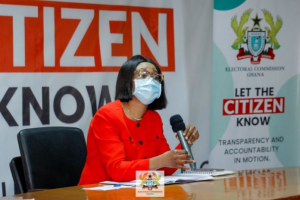The strike by members of the Civil and Local Government Staff Association, Ghana (CLOGSAG), in demand for the payment of their neutrality allowances continues this week.
CLOGSAG laid down their tools on Thursday April 21, 2022, following the inability of government to pay the allowance as agreed upon in January this year.
Most government agencies and departments were affected last week by the strike.
The association has already given indication that they will call off the strike on condition that government makes a commitment to pay them the allowances due them.
“It was noted that the Neutrality Allowance has not been effected as agreed, in spite of official reminders and follow-ups to the Ministry of Finance and Economic Planning,” CLOGSAG noted in a statement last week.
The neutrality allowance is to ensure that civil and local government workers do not engage in partisanship while conducting their affairs when they are in their various offices. It is paid to them to ensure that they discharge their duties professionally without getting involved in partisan activities.
The strike and demand for the allowance has generated public debate with divided opinion on the relevance of such an allowance.
While some contend that government giving in to this demand will open the floodgate for other allowance claims from the state, some believe that such an allowance is important to keep civil and local government workers away from serving based on their political interests.
US-based professor, Prof. Kwaku Asare, also known as Prof. Azar in a Facebook post said, “Ghana’s civil service has been so politicized that civil servants must now be paid political neutrality allowance… In most places, civil servants are neutral and may, albeit with substantial risks, be incentivized to be partisan. Ghana’s civil servants, on the other hand, appear to be partisan until they are incentivized to be neutral. We have to be careful or soon students will be demanding allowances to take exams, voters will be demanding allowances to vote.”







